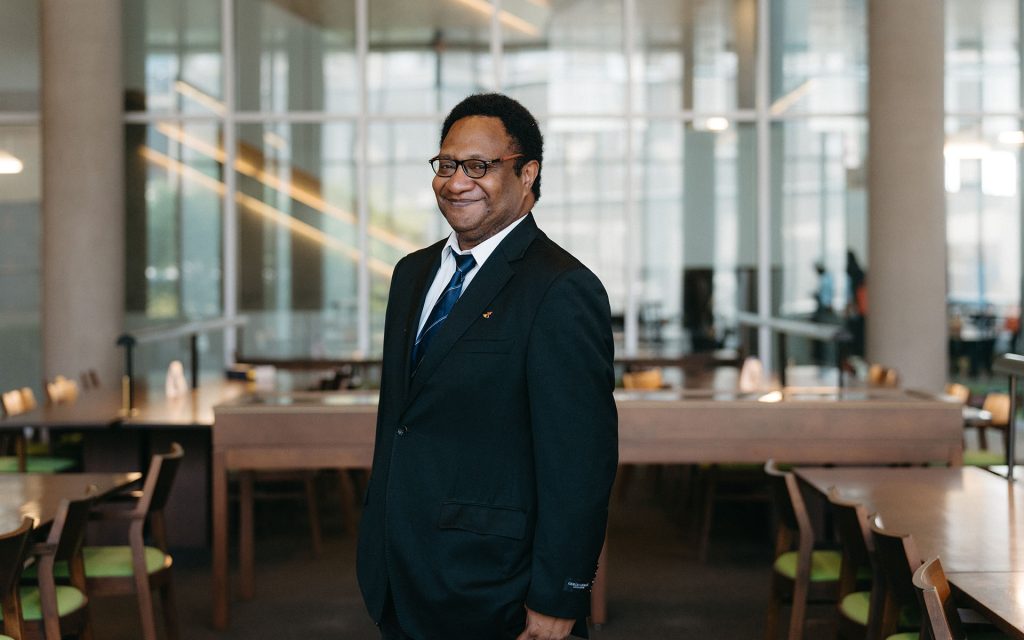Ansca Pakop LL.M.’25 is proud to be the first person from Papua New Guinea to attend the Syracuse University College of Law, and he plans to make the most of his time here. Almost 9,000 miles away from his island home in the Oceania region, Pakop is looking forward to spending the next year in Syracuse on a Fulbright grant to expand his already extensive legal knowledge by earning a Master of Laws (LL.M.) degree with a particular interest in international law and national security.

A working attorney for over a decade, Pakop has a LL.B., MBA and a master’s degree in economics and public policy from the University of Papua New Guinea. After holding a number of positions in many areas of the law, he is currently the legal counsel for the Climate Change & Development Authority in Papua New Guinea. His work is key to protecting the environmentally vulnerable island, and he has been involved in drafting, advising and interpreting climate change-related legislation and regulations, including Papua New Guinea’s Climate Change (Management) Act and the U.N. Paris Agreement Implementation Act.
Papua New Guinea became independent from Australia in 1975. With 13 million people speaking more than 800 languages, it is both the most populated Pacific island state and the most linguistically diverse in the world. Its large supply of minerals, particularly copper and gold, as well as petroleum and natural gas, both spur the economy and contribute to some of the major environmental issues that the island faces, including deforestation, erosion, greenhouse gas emissions, water pollution, natural disasters and flooding.
Pakop’s interest in adding national security and international law to his resumé comes from Papua New Guinea’s urgent need to update its outdated national security policies, legislation and international intelligence operations, which date back to when the island was still an Australian colony. Its resources, economic potential and geographic location make Papua New Guinea of interest to world powers like Australia, China and the United States. In fact, the U.S. is currently investing a great deal there, including the renovation of a naval base to be used by the U.S. Navy, as a strategic location in close proximity to China.
Pakop is eager to learn as much as he can through the LL.M. program in order to bring that knowledge back home. He is pleased with his experience so far, calling it “quite intense and competitive.”
“I’m enjoying my classes, the diversity and the academic environment here,” he says. “We have such excellent and renowned faculty at Syracuse Law, many of whom have insights into things like NATO and cybersecurity that interest me. I’m learning such quality information through lectures and enriching classes.”

In addition to his studies, Pakop has also joined the Student Bar Association (SBA), as well as the African Graduate Students Network.
Once he has earned his LL.M., he plans to return to Papua New Guinea’s Climate Change & Development Authority. He would also be open to working with his government’s defense or security agencies in the future.
“An LL.M. degree from Syracuse Law in the United States will be very helpful and prestigious for me when I return to Papua New Guinea,” Pakop says. “I am certain that the things I’m learning about international law will help my work and further my career. And, I will also have the strength of the Syracuse Law network behind me, even when I’m back on the other side of the world.”
